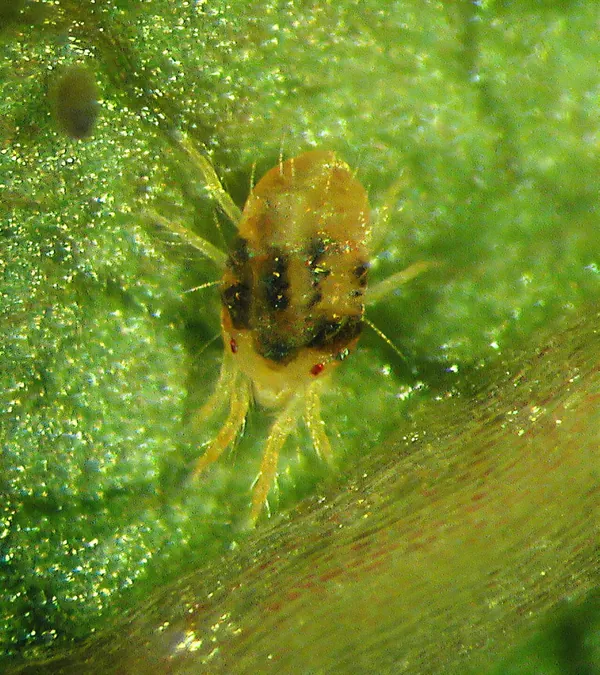
Revolutionary Method: Sprinkling Water Keeps Spider Mites at Bay in Raspberries!
2024-11-07
Author: Emma
Introduction
In a groundbreaking effort to combat pests in raspberry production, researchers at the Norwegian Institute of Bioeconomy Research (NIBIO) are finding a simple yet effective solution: sprinkling plants with water. This innovative approach aims to reduce reliance on harmful chemical pesticides while boosting sustainable agricultural practices.
The Problem with Spider Mites
Raspberry producers face a formidable adversary in the form of the two-spotted spider mite (Tetranychus urticae), a tiny arachnid notorious for wreaking havoc on various plants, particularly strawberries and raspberries. Both the mites' nymphs and adults are voracious feeders, draining nutrients from leaves, leading to wilting, stunted growth, and premature leaf drop.
According to researcher Nina Trandem, the options for getting rid of these pests are increasingly limited. "Growers have fewer chemical agents available, and biological control organisms don't always provide the satisfaction we seek. We need effective alternative methods," she stresses.
The Experiment: A Game-Changer for Raspberry Cultivation
In pursuit of a more sustainable solution, Trandem and her team initiated an experiment investigating the effects of routine irrigation on spider mite populations in tunnel-grown raspberries. The experiment utilized agile chambers housing clusters of raspberry plants, equipped with sprinklers that periodically misted the plants. Control plants, placed outside these chambers, received no water treatment, allowing researchers to closely monitor differences in mite populations.
"The chamber design was a significant challenge," admits Vinh Hong Le, chief engineer at NIBIO. "They had to prevent control plants from getting wet while remaining accessible for monitoring. Our early prototypes were blown away by the wind, but we've since anchored them securely."
As the study unfolded, a curious intern from France named Clément Follut meticulously recorded spider mite infestations throughout the summer, documenting the creatures' life cycles and their impact on the raspberry plants.
Promising Results: Water Works Wonders!
With the experiment now complete, results are eye-opening. Trandem reports a staggering 40% to 50% reduction in spider mite populations on plants that received regular water sprinkling, compared to those that remained dry. Remarkably, this method produced results comparable to a single application of chemical miticide, demonstrating that spider mites struggle to survive in moist environments.
This research echoes positive findings from strawberry tests, highlighting the dual benefits of irrigation—not only does it diminish spider mites, but it also creates favorable conditions for predatory mites, which are natural enemies of these pests.
However, Trandem notes that this method does not fully eradicate spider mites; instead, it effectively maintains their numbers below damaging thresholds. Furthermore, timing is crucial: the water must evaporate quickly during warm weather to prevent conditions that could foster fungal diseases, such as gray mold.
Exploring Innovative Water Treatments
Symbolizing the quest for effective pest management, researchers are also investigating unconventional water applications through the RobustRubus project, which features a Plant Sauna developed by the Norwegian-Dutch company Moleda AS. This system exposes plants to steam at high temperatures, promoting robust health while combating both fungal and pest infestations.
Professor Arne Stensvand, an authority on fungal diseases in fruits, boasts excellent outcomes from using the Plant Sauna against significant threats like black root rot in strawberries and now aims to test its efficacy against red root rot in raspberries.
Conclusion
The results of this pioneering research signal a bright future for raspberry cultivation, sparking excitement among growers eager to adopt sustainable, environmentally-friendly practices that ensure their crops remain both healthy and productive. Is this the future of pest management for our delicate berries? Only time will tell, but the prospects are undeniably promising!









 Brasil (PT)
Brasil (PT)
 Canada (EN)
Canada (EN)
 Chile (ES)
Chile (ES)
 España (ES)
España (ES)
 France (FR)
France (FR)
 Hong Kong (EN)
Hong Kong (EN)
 Italia (IT)
Italia (IT)
 日本 (JA)
日本 (JA)
 Magyarország (HU)
Magyarország (HU)
 Norge (NO)
Norge (NO)
 Polska (PL)
Polska (PL)
 Schweiz (DE)
Schweiz (DE)
 Singapore (EN)
Singapore (EN)
 Sverige (SV)
Sverige (SV)
 Suomi (FI)
Suomi (FI)
 Türkiye (TR)
Türkiye (TR)